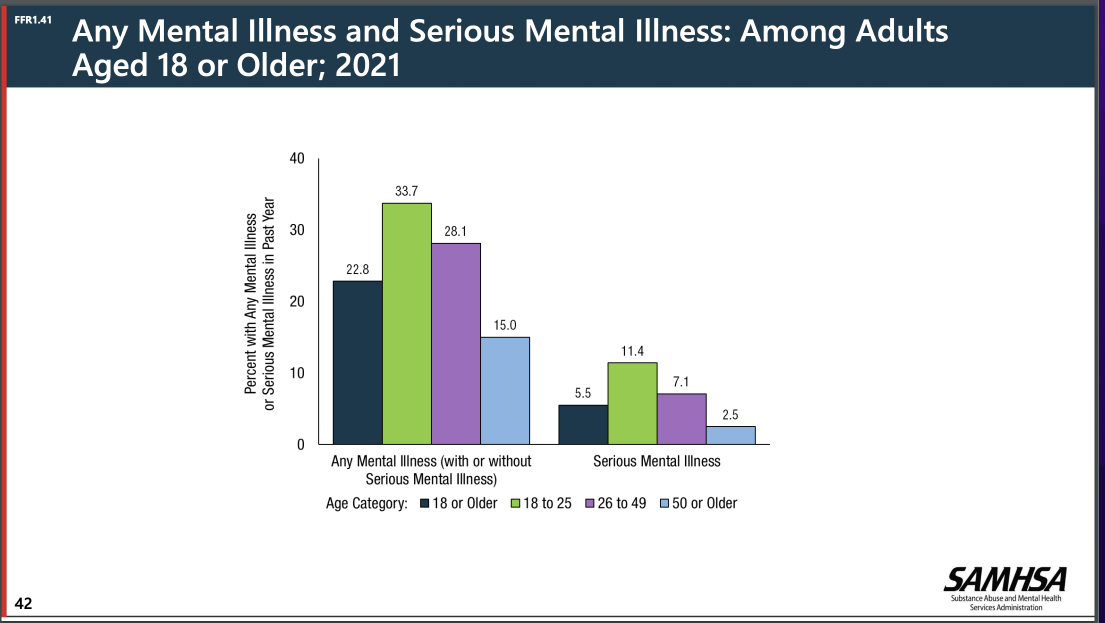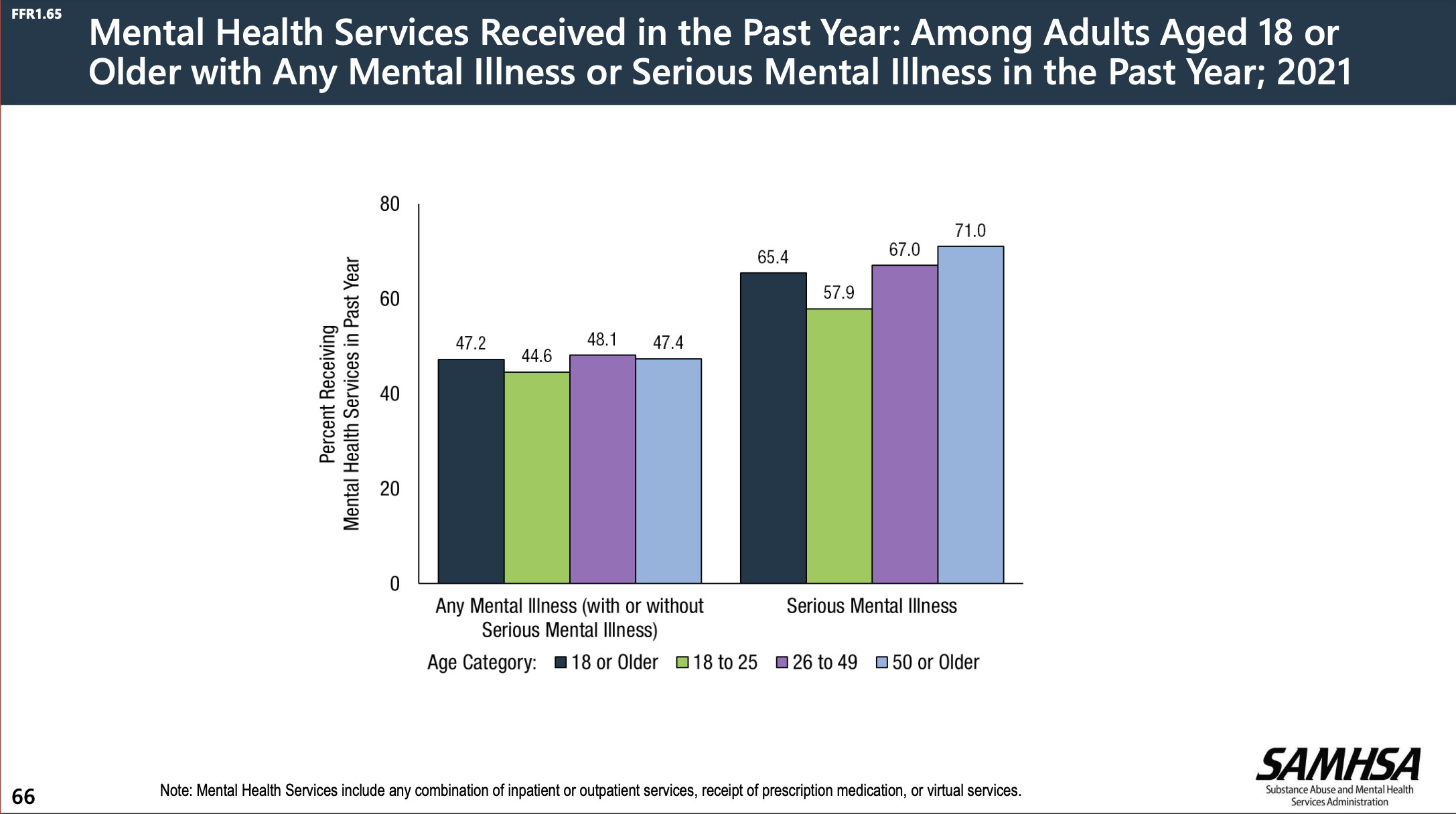
Earlier this month, the Substance Abuse and Mental Health Services Administration (SAMHSA) released its annual National Survey on Drug Use and Health (NSDUH), which examined substance use and mental health data from 2021. Although the survey has been administered since 1971, SAMHSA called this year’s “the most comprehensive report on substance use and mental health indicators” that the organization has released to date.
We have reviewed the report and agree that it shares important and comprehensive findings about the state of mental health in the U.S. SAMHSA’s core commitment to quality data and evidence is also our top priority at Holmusk as we effect meaningful change in the use of real-world data for behavioral health.
A few of our key takeaways from this most recent survey:


As Miriam E. Delphin-Rittmon, PhD, the leader of SAMHSA and the HHS Assistant Secretary for Mental Health and Substance Use, said about this year’s NSDUH, “Harnessing the power of data and evidence is critical to ensuring policies and programs have the greatest opportunity to achieve positive outcomes.”
At Holmusk, we are continuously harnessing the power of data by partnering with health systems, life science and other health tech companies, and other collaborators to capture a comprehensive picture of mental health in the U.S. and improve outcomes across the board.
Holmusk’s NeuroBlu Database is quickly gaining adoption as the leading source of real-world clinical data for behavioral health, with information about diagnoses, treatments, behavioral health assessments, and more. A few ways the NeuroBlu Database is being used in efforts to improve mental health include:
As we build the NeuroBlu Database, we are driven by a vision: Having access to the best behavioral health data will benefit all members of the behavioral health ecosystem. Researchers will be able to develop better treatments, patients will receive higher quality care, and health care systems will be better equipped to deliver the care that patients need.
If you need better data for behavioral health, find out how we can help.